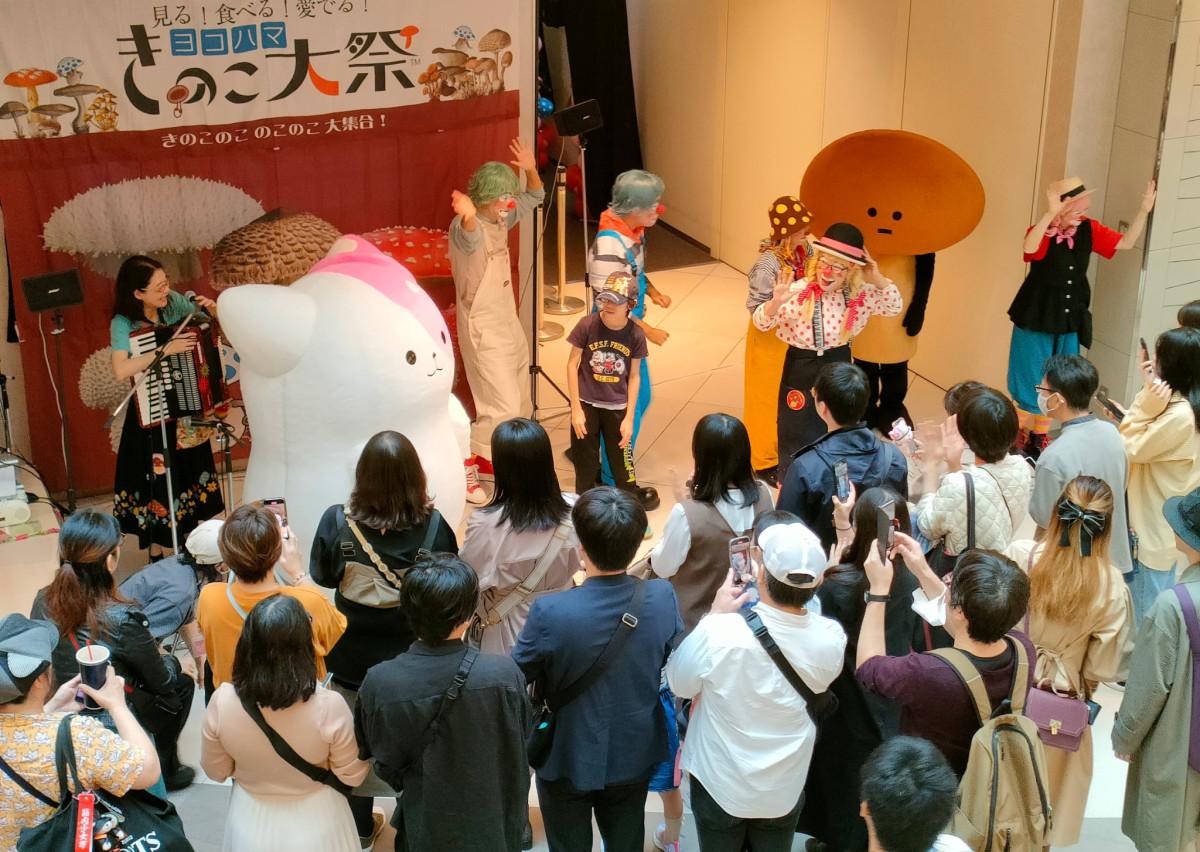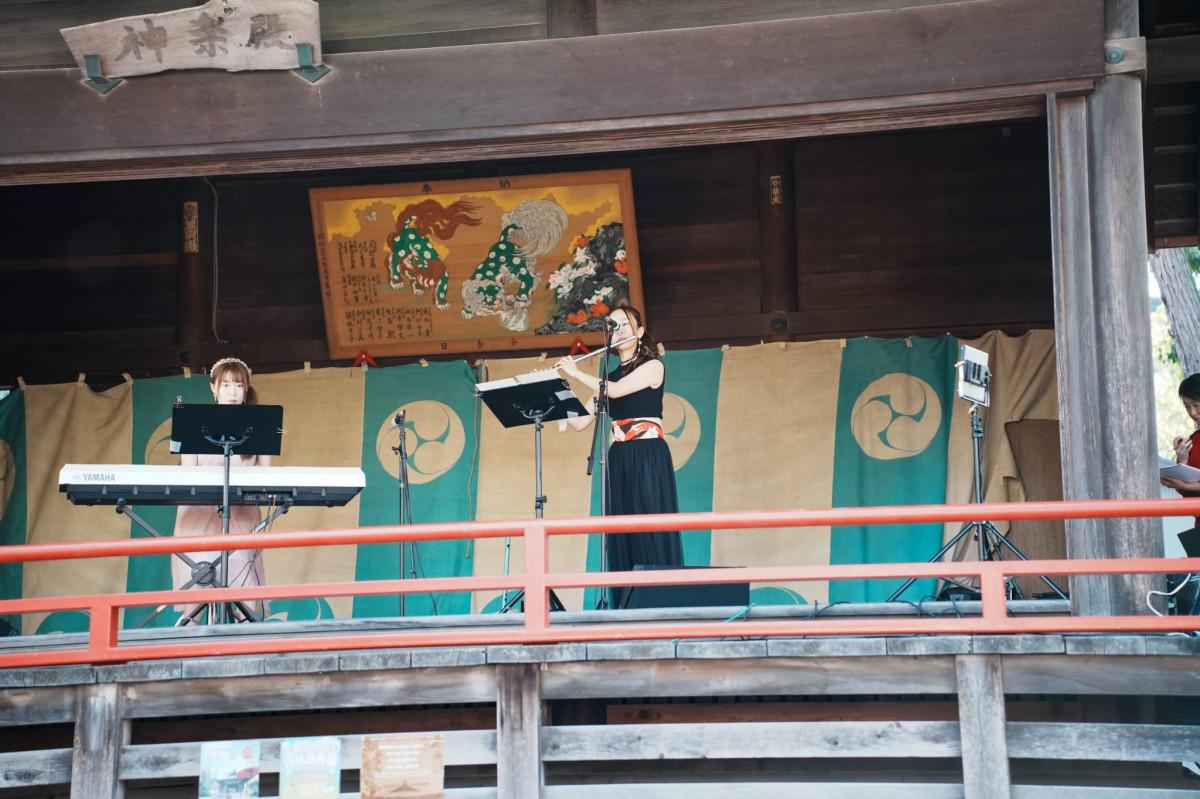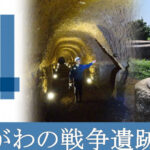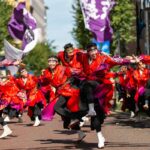The “Kami JAZZ” event featuring jazz performances will be held on October 19th at Ominomiya Hie Shrine (5 Sannocho, Minami Ward, Yokohama).
Four groups will perform on the Kagura Hall stage: Wajamin (12:10 PM, koto, piano and bass), Riko Ichikawa & Yoko Suzuki (1:10 PM, vocals and piano), Kenji Ise & Yu Kimura (2:10 PM, saxophone and piano), and Mika Hino with Yoshimi Hirota (3:10 PM, vocals and piano). Each will perform approximately 40-minute live sets. Yoshino Hayashi will appear during the opening from 11:00 AM.
Toyota Mobility Kanagawa Minami Store (5 Yoshinocho) will serve as a second stage, featuring performances by local groups and demonstrations of hydrogen fuel cell vehicles and power sources. During the opening from 11:00 AM, Asa Ki (hand organ) and Akari DUO (vocals and guitar) will perform.
Within the shrine grounds, sacred sake and famous Kanagawa sake will be sold, featuring six breweries in the “Kanagawa Sake Brewery Special.”
The “Ominomiya Market” will be held simultaneously with vendors including “Yokohama Kimijimaya,” “HIMEMIKOJAPAN,” and “Jazz Cafe Chigusa Preservation Society.” Food trucks on the road in front of the shrine will sell items such as “Salam Kebab” and “The Little Prince’s Stone-baked Sweet Potatoes,” along with miscellaneous goods.
A guided walking tour themed “The Mystery of Yoshida Shinden’s Knots” will be held from 10:00 AM to 12:00 PM, with a capacity of 15 people requiring advance registration.
The event aims to provide enjoyable entertainment centered around the theme of “sake and music,” which has been used to praise gods since ancient times. Reflecting Minami Ward’s characteristic of multicultural coexistence with many foreign residents, the event will feature an international market with food from five countries. The Kanagawa local sake special is also recommended.
Event hours are from 12:00 PM to 4:00 PM (opening and market from 11:00 AM). Admission is free.

The “Yokohama Kinoko Festival 2025” will be held at MM Terrace (4 Minatomirai, Nishi Ward, Yokohama) on October 18th and 19th, themed “Look at Mushrooms! Eat Them! Appreciate Them!”
Now in its 11th year since starting in 2015, the “Mushroom Market” brings together producers from across Japan selling standard varieties like shiitake, bunashimeji, and mushrooms, plus rare mushrooms like tamogitake and hanabiratake, as well as dried mushrooms and processed products. Since producers sell directly, visitors can ask about cultivation methods and cooking techniques.
The “Mushroom Goods & Art Exhibition” features handmade mushroom-themed items including accessories, illustrations, and stuffed animals, with some items exclusive to the event.
Workshops including “Mushroom Craft Making,” “Original Goods Creation,” and “Mini Mushroom Art Experience” can be enjoyed by parents and children together.
Stage programs will feature music and performances. Mushroom characters including “Shiitake Fairies Donko-chan & Riko-chan,” “Kinoko Inu,” and “Nameko & Cardboard Nameko” will appear on different days to liven up the venue.
During the event period, various restaurants at MM Terrace will offer special “Mushroom Festival Collaboration Menus” including “Stir-fried Pork Loin with Plenty of Mushrooms in Special Salt Sauce” from Japanese restaurant GOHANYA’GOHAN, and “Pappardelle with Fragrant Mushrooms and Nagasaki Venison Ragu Sauce” from Italian restaurant LEONE MARCIANO – professional chefs will present diverse dishes using seasonal mushrooms.
Event hours are from 11:00 AM to 5:30 PM. Admission is free.






